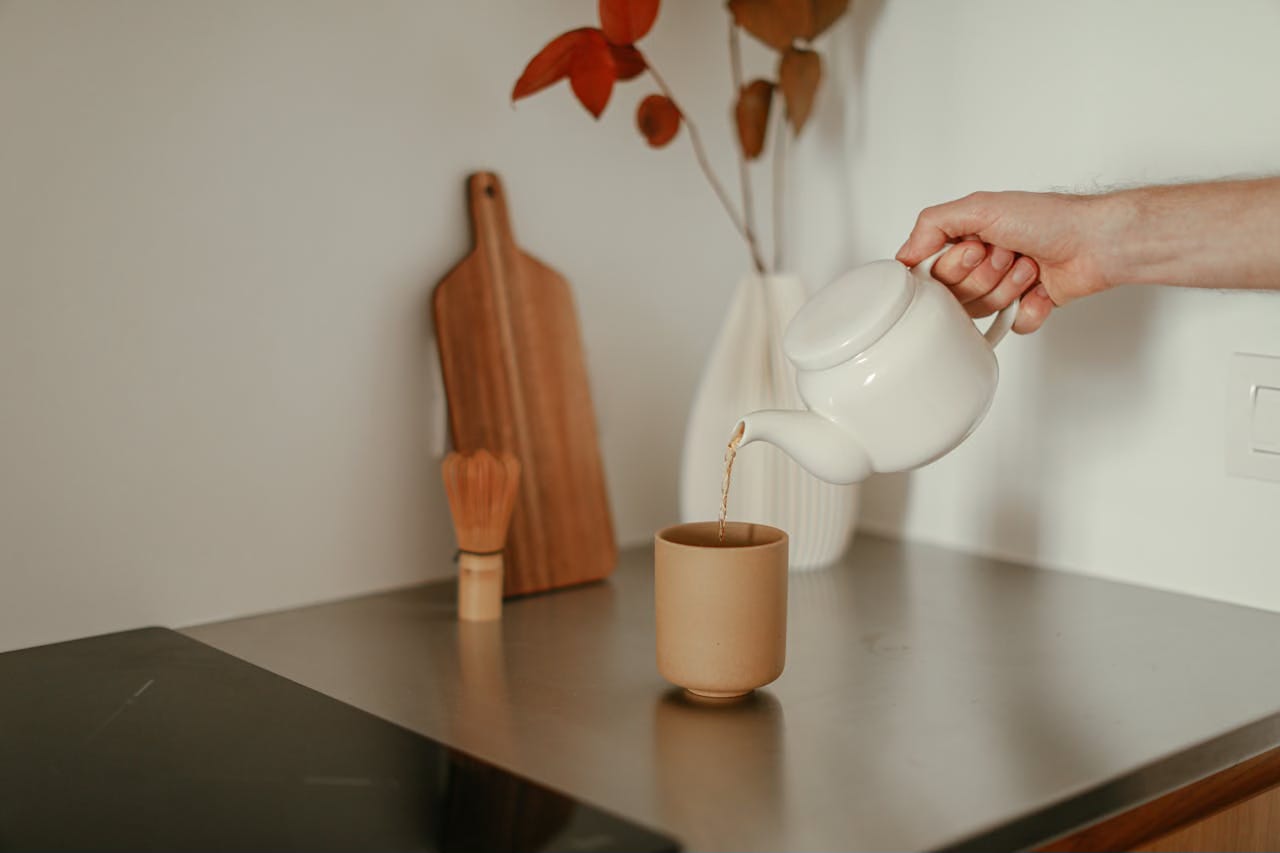21 Ways to Slow Down and Enjoy Life More
Are you locked into a busy lifestyle and don't know how to get out?

Are you swept up in the speed that characterizes modern life?
I wouldn’t be surprised if a sense of urgency has infiltrated every aspect of your life, prompting you to walk, eat, talk, and drive more quickly.
Because constant activity can cause an imbalance in your brain’s dopamine levels, a highly addictive brain chemical that brings about momentary feelings of reward and pleasure.
Dopamine rises when you’re busy. You may unknowingly stay busy to get more feel-good dopamine hits. You may even get caught in a vicious dopamine-craving cycle that keeps you locked into a busy lifestyle.
In their book The Molecule of More, Daniel Z. Lieberman, MD, and Michael E. Long explain:
“Dopamine has no standard for good, and seeks no finish line. The dopamine circuits in the brain can be stimulated only by the possibility of whatever is shiny and new, never mind how perfect things are at the moment. The dopamine motto is ‘More.’”
Too Much Busy = Too Much Stress
However, being too busy can add up to excessive stress.
Our brains and bodies are designed to face immediate stressors, followed by periods of recovery when we relax, eat, sleep, or reproduce, before facing another stressful event.
They weren’t designed for chronic stress.
Thus, chronic stress can adversely impact your physical and mental health, and according to WebMD, contribute to a variety of symptoms and disorders, including:
Headaches
Heart disease
Digestive problems
Sleep disorders
Anxiety
Depression
Among other disorders
Don’t fool yourself into thinking stress won’t get you.
To counteract busyness and live a healthier life, consider slowing down, at least for brief periods.
When you consciously choose to slow down, you can:
Reduce stress
Make room for genuine connection with others
Increase enjoyment
Reduce mistakes
Hear the whispers of your heart
Tune into the promptings of your body
Allow space for connecting with the mystery of life
Doesn’t that sound good?
21 Ways to Slow Down and Savor the Moment
Although I value slow living, I also tend to rush through even the simplest tasks. So, I created this list of ways to slow down as a reminder for myself. I hope it will help you too.
Read through the list. Select your favorites. Commit to including a few of them in your life daily and add some as special weekly rewards.
1. Make Lists
Making a list invites me to pause, prioritize, and plan. Using a list protects me from forgetting. As a result, I don’t waste time backtracking to fix errors or making endless trips to the store to pick up that forgotten item.
I make daily, weekly, and monthly to-do lists. I also keep a running shopping list, dividing it by different types of stores.
Instead of looking at my shopping list once, in haste, as I enter a store, I take the time to check off each item as I put it in my cart. Otherwise, a few items immediately vanish from my mind. I end up in the car or back home without the one thing I truly desired or needed.
Keep your to-do lists simple. Otherwise, you’ll feel more pressure and stress. Focus on your top three priorities, one at a time.
2. Establish a Morning Routine
Cortisol, known as the primary stress hormone, naturally rises in the morning to wake you up. Normal levels help you stay focused during the day.
According to Psychology Today, cortisol levels in most people peak around 9:00 am and then gradually decline throughout the remainder of the day.
Stress can spike cortisol levels and initiate the fight-flight response. Once that happens, it can take several hours for your cortisol levels to get back to normal.
Why raise your cortisol levels more than necessary first thing in the morning? You’ll only set the stage for a stressful day.
Instead, start with a calming morning routine. Aim for 20–30 minutes. If that seems impossible, start with 10 minutes and slowly expand from there.
Keep it simple. Perhaps you just need to sit quietly and savor a cup of tea for a short time to feel centered, at ease, and ready to face your day. Morning exercise, meditation, and writing in a gratitude journal will also keep stress at bay.
3. Wind Down in the Evenings
To reset your nervous system each day, establish a relaxing evening routine.
Set aside at least an hour to wind down before bed. Lower the lights, turn off electronic devices, and shut off the TV. Living in alignment with your circadian rhythms—early to bed, early to rise, in tune with the light-dark cycle—helps you sleep better and reduces stress, too.
You’re evening routine might involve light reading, a warm bath, listening to soothing music, setting out your clothes — whatever makes it easy for you to decelerate.
4. Connect with Yourself
If you go non-stop, you may fail to tune into yourself for a single second during the day. Instead, make it a habit to connect with yourself several times a day.
Ask yourself:
“How do I feel — emotionally and physically? What do I need right now?”
Then give yourself what you need.
If you check in and find you feel stressed, try a tiny pleasure designed to reduce stress. They only take a few minutes and can make a big difference in how you feel.
5. Speak Slowly
Do you often forget to think before speaking because you feel rushed?
Instead, pause before you speak and let your words pass through these four gates that originated with radio host Bernard Meltzer:
Is it true?
Is it necessary?
Is it kind?
Is it helpful?
Practice active listening with the intention of understanding rather than defending your view. Your attentive presence will make a difference in the quality of your communications and the depth of your connections.
According to Eastern traditions, speech consumes a significant amount of our vital energy. Consider speaking less, listening more, and taking periods of silence to replenish yourself.
6. Walk Mindfully
Walking mindfully is a simple way to inhabit your body instead of rushing headfirst to get from one place to another.
It’s easy.
Slow down your pace slightly and place your attention on the heel-to-toe movement as each foot touches the ground. Breathe naturally and allow your eyes to gaze softly in front of you.
Take notice when your attention wanders away into thoughts, emotions, and the dramas of the day. Without judging or chastising yourself, gently bring your awareness back to the sensations of walking, back to the present moment.
Practice mindful walking often during the day. You don’t have to go at the speed of molasses. Just slow down a bit and feel yourself present in your body.
7. Prepare the Night Before
If you feel rushed in the morning, you’ll begin to feel stressed before you’ve started the rest of your day. You can avoid the morning rush by preparing the night before.
In the evening, select and set out your clothes for the next day. Anticipate the practical items you’ll need over the coming day. Gather them together and put them in your purse, a tote bag, or a briefcase.
Make this preparation a part of your evening ritual. Be sure to approach it in a conscious and relaxed manner.
8. Sit Under the Night Sky
When you sit quietly under the stars, you can experience and appreciate the mystery of life and the vastness of all that is.
This experience can help you connect with the spacious reservoir of wisdom that lies within, which is momentarily less obscured by constant thinking, relentless busyness, or continual engagement in these moments of quiet wonder.
9. Create Your Own Tea Ceremony
The traditional Japanese tea ceremony is a form of meditation. It’s also an opportunity to slow down and savor the moment. Create your own tea ritual, however you like, just be sure that mindfulness guides it.
Set aside time each afternoon. Heat a kettle of water. Release a tea bag from its packet. Place it in a special cup. Or place tea leaves in a teapot. Then gently pour the hot water into the container.
Pay attention to each movement you make.
As you begin to sip your tea, take note of the flavors, aromas, and taste. Feel gratitude for all the people it took to bring this tea to you, from the growers to the pickers, packers, and drivers.
Teatime can become a reminder to slow down. It can serve as a bridge between the activity of the day and the down tempo of the evening.

10. Say “No, Thank You”
It’s challenging to slow down and enjoy life if you have too many commitments.
Instead of being run by should-dos, must-dos, or have-to-dos, let your heart be the guide when it comes to saying “yes” or “no” to invitations or new commitments.
You usually know what you want to say when you get an invitation. Pay attention to yourself. Do you feel an automatic “yes?” Or, do you feel a heaviness around your heart or a stone in your gut?
Have the courage to honor your heart.
11. Unplug
No one knows the full extent of the dangers of constant digital engagement. But we do know it can be addictive, change your brain, and alter the quality of your life.
It can:
Fill you with unimportant and useless information
Diminish your creativity
Suck up your free time
Take attention away from your partner, family, or friends
Is that what you want?
Experiment with digital sabbaticals and see if they make a difference for you. Unplug for a day each week or go all out for a weekend, a week, or a month.
12. Savor Your Food
Rushed meals can lead to indigestion, heartburn, constipation, and fatigue.
You need to chew your food thoroughly — 30 to 40 times for each bite — to digest it properly. That means taking your time.
Eating too fast also adds to a frantic feeling in life.
If you want to relax, avoid eating while driving, at your desk, around the water cooler, or while watching TV.
Use the moment you sit down at the dining table as a reminder to slow down, pay attention to your food, and enjoy every bite of your meal. Smell the aromas, delight in the colors, and savor the flavors.
13. Write or Type at Half Speed
Once adopted, speed begins to infiltrate every aspect of your life. You may have never noticed, but check now: Do you automatically write or type at high speed out of habit?
Try half speed and practice presence as you write or type. See how it feels.
14. Take the Slower Route
Just because everyone else breaks the speed limit in their frenzied race to the next place, doesn’t mean you must too.
Choose the slow lane, take the scenic route, or try a less-traveled course. It might take 10 minutes more, but won’t it be better to arrive more relaxed?
15. Send Handwritten Notes
The speed of email and texts automatically increases the pace of our lives.
Once a week or so, take a moment to linger with pen and paper as you prepare a thoughtful handwritten note instead. Imagine how surprised and delighted the recipient will feel.
16. Create or Color
Paint, draw, mold clay, or color for no particular reason at all.
I love coloring in adult coloring books and find it meditative. A study reported in Forbes shows that adult coloring reduces anxiety and increases mindfulness compared to reading.
17. Take a Day Off Each Week
We all need time for rest and renewal, but I bet you often feel obliged to fill your weekends with chores, obligations, or unfinished work.
Instead, set aside a day each week for “dolce far niente” — that means “the sweetness of doing nothing.”
Sleep late, enjoy your family, commune with nature, go for a picnic, take a nap, watch the sunset — do whatever delights your heart.
18. Do One Thing At a Time
In his book The Organized Mind: Thinking Straight in the Age of Information Overload, Daniel J. Levitin highlights the detrimental effects of multitasking.
Multitasking increases the production of the stress hormones cortisol and adrenaline. It also creates a dopamine addiction feedback loop, rewarding the brain when it gets distracted and searches for external stimulation.
That means the more you multitask, the more you’re inclined to distraction.
Break the loop. Choose to focus on one thing at a time and give it your full attention.
19. Give Yourself More Time
We often underestimate the time it takes to complete any given task. That leads to frustration, pressure, and stress.
Double the amount of time for every single task on your list. If you finish a task early, use the time to relax or enjoy a tiny pleasure.
20. Try Slower Paced Exercise
To calm and reset your entire body, try gentle exercises like Tai Chi, Restorative Yoga, Pilates, stretching, walking, or swimming without the cranked-up music.
Exercises like Tai Chi and Yoga calm and heal the nervous system.
21. Schedule Unplanned Time
Schedule 30 minutes of unplanned time each day. If you don’t schedule it in your planner, it probably won’t happen.
During your unplanned time, allow yourself to daydream, sit quietly and gaze out the window, ask a question, and listen to the whispers of your heart. Take a bath, swing in a hammock, take a nap, or lie on a blanket in the sun.
Make your own “do nothing list” of your favorites so you won’t get trapped when your mind pulls you toward busyness.
Make a Commitment to Yourself
Remember, reading about slowing down isn’t enough.
Select your favorites from the above list and add your own. Commit to including a few of them in your life daily and add some as special weekly rewards.
Some of my best moments include sitting aimlessly in the sun, watching tall trees gently sway in the breeze. I feel deeply nourished and connected on a profound level.
I wish that for you, too. All it takes is a conscious commitment to slow down.
Do you need to slow down more? I would love to hear your thoughts.
New Designs at Wild Arisings Press!
I’ve added more cool-toned designs to my tropical composition book collection. Each design is meant to spark a little joy every time you pick it up. I hope you’ll take a moment to check them out! They make great gifts.
See all 18 designs on my Wild Arisings Press author page at Amazon:
If you look forward to receiving these e-letters, and they help you navigate life with more mindfulness, self-awareness, and ease, I’d love your support as a paid subscriber. If you’re new, subscribe for free and explore my writing first. You’ll join 4,000+ beautiful souls.





A true day off even once a month would be so nice. I'm not willing to accept the consequences of leaving things undone.
Was happy to see that I do many of the things on your list. Getting away from screens is my next challenge. So many dopamine hits!